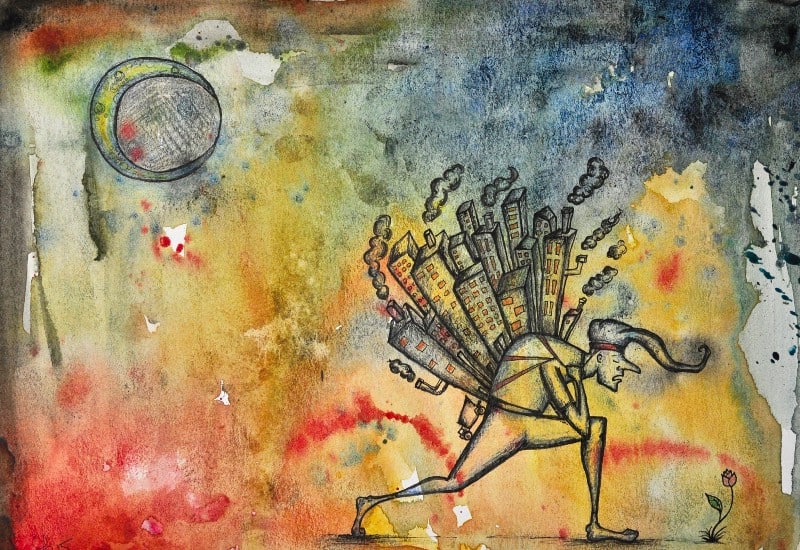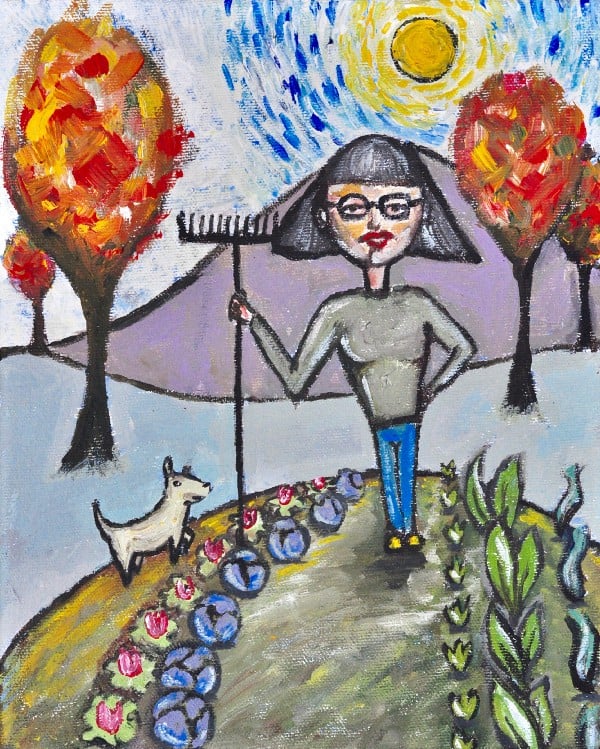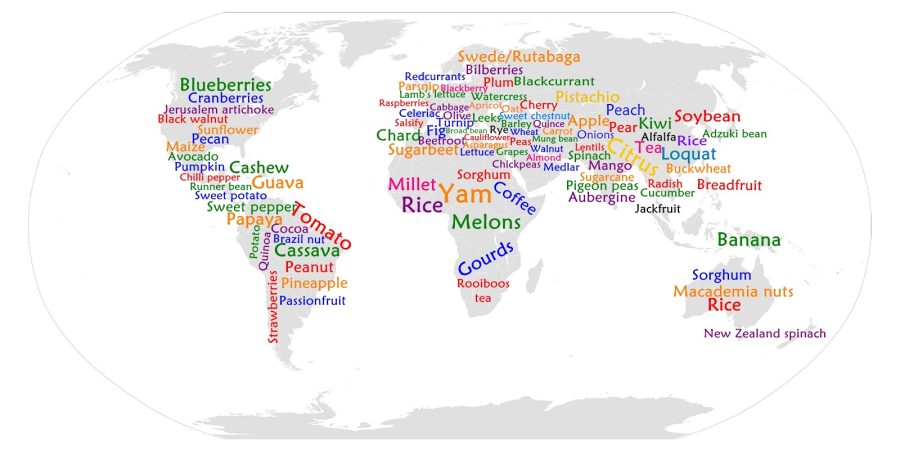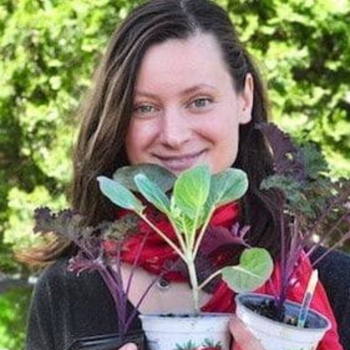How do we move towards a socially sustainable permaculture?
By Lucie Bardos
There is no doubt that over the past decades, permaculture has grown tremendously in popularity. Permaculture Design Certificates, books, movies, meetings, convergences, teachers’ groups — all have seen an increase. I would argue that Permaculture has grown into a bonafide, international, globally connected movement. For enthusiasts such as myself, this is generally great news. However, with popularity, also comes analysis and responsibility.

Permaculturists such as Heather Jo Flores, Kim Del Valle Garcia, LisaDePiano, and Silvia Di Blasio have all contributed analyses which point to the fact that there is certainly a large deficit within the permaculture movement in terms of understanding how oppression is systemic in nature, and how permaculture without awareness of this can perpetuate racism, sexism, classism, cultural appropriation and other forms of discrimination.
I think that the current work on decolonizing permaculture has a wealth resources to offer and this article is my humble attempt to add to that body of knowledge. This is a piece for folks who see the need to implement decolonization and social justice within permaculture but who might be left wondering what to do first in order to transition towards a more conscious and just permaculture practice.
For instance, I might be interested in stopping the appropriation of knowledge, but I might not know the right words to use to give credit to local indigenous peoples in a way that is not only respectful but that also acknowledges the histories of violence and oppression that have lead to me, a white woman living in Canada, being able to do something like appropriate Indigenous knowledge and not even be aware of it in the first place!

To help me contribute to this conversation, I think it would be useful to situate permaculture within a general context of social justice. When I use the term ‘social justice’ I refer to the acknowledgement of existing inequalities in terms of the distributions of power and privilege amongst social groups, as well as the work being done to address these inequalities.
These inequalities stem mostly from historically rooted social and economic systems that perpetuate violence, oppression, and discrimination based on intersections of race, gender, age, class, education, gender, sexual orientation, able-bodiedness and more.
So, what are some ways that the permaculture movement can engage better with social justice? Below are a few practical tips for reflection and action that could be useful for permaculture practitioners.
Actively make room in permaculture for people who may have more difficulty than others participating in the movement
Permaculture is often marketed as a movement that is ‘open to anyone’ or ‘doable by anyone’, but often we do not address the fact that some folks, while on board with permaculture ethics and principles, might not feel comfortable, or might not have resources to participate to the extent that others are able to.
First, think about this: who is usually present at permaculture gatherings, courses, and meet ups? Do you see any trends in terms of things like gender, skin colour, class or education level when thinking about who is out there teaching permaculture?
I was privileged enough to be able to attend and volunteer at the 5-day long European Permaculture Convergence in Bolsena, Italy in 2016. I was also happy to see presenter Pandora Thomas from the United States talk about social justice and her permaculture training programs for empowering youth at risk and formerly incarcerated folks with permaculture training. Still, Pandora was the only person whose workshop I attended in the convergence to address permaculture through a critical social justice lens and to actually have created a project around it. She was also one of very few people of colour to hold a workshop.
Given their importance, the kinds of initiatives that Pandora is a part of should have a much larger presence in meetings, convergences, and published material about permaculture; so why don’t they? Perhaps because when the organizers of an event, project, or course come from a place of privilege, it is easy not to have to reflect on those things which don’t affect them. So, research and reflection are the first step.
What are some simple things to implement? If you run a permaculture course or workshop, make sure there are gender neutral bathrooms, make sure it’s accessible, and let everyone know! Make sure that participants know that you will be addressing the issue of how folks with more resources in the community can “redistribute the surplus” (one of the core ethics of permaculture) more equitably within their communities, and invite speakers who might be best qualified to discuss this to participate in your workshop/course. Include topics that are locally relevant for marginalized communities. In Canada and the United States that might be something like: How can we work with Indigenous communities to support them in their efforts to protect their lands and resources or in current struggles they have with the government?
Obtain Anti-Oppression Training — Don’t Just Read About it!
In order to better understand the concrete ways in which permaculture can be colonizing and generally problematic within the context of social justice, it is important to get the facts from a reliable source i.e. someone with experience in conveying and working with these kinds of topics.
I firmly hold that all Permaculturists need to cultivate an understanding of systemic oppression and colonial history in order to be better equipped to articulate why permaculture practices can contribute to ongoing colonization and to understand on a deep and meaningful level, why this needs to change.
Permaculturists, permaculture teachers or business owners could all benefit from attending workshops with facilitators trained in anti-oppression and social justice work. These can be found in most small and large cities or online. In Canada for instance, we have the PIRG’s — the Public Interest Research Groups — which are student-run bodies that provide support, services and training around issues of environmental and social justice. They will often have facilitators that can provide this kind of training or at least be able to help direct people to organizations or individuals who can. In the States I know about AORTA (Anti-Opression Resources Training Alliance) and Movement Generation who are also doing amazing work.
Design For Processing Discomfort When Faced With Uncomfortable Topics
This ties in closely with the point above. Facilitators who provide social justice and anti-oppression training are also great at helping folks work through the inevitable discomfort that talking about things like power and privilege can cause for many people.
Folks who hold more privilege and power in a given society will often need to process reactions such as guilt, shame, and defensiveness when they come to understand that they have grown up and in, therefore participate (though perhaps unintentionally) in a system that is oppressive to others.
In 2015 I wrote my masters thesis about this same phenomenon happening in the transition towns movement — a sustainability movement closely linked to permaculture — and how these feelings of discomfort around privilege sometimes perpetuated alienation between the movement and others trying to participate.
Through my thesis-writing process I found that I underwent much of the expected feelings of shame and defensiveness as I reflected on the harmful ways I myself had participated in permaculture-based projects. In my permaculture experience, teachers often urge students who anticipate a problem to “design for that”, i.e., to correctly anticipate or identify an issue and use resourcefulness to consciously mitigate it. Having read lots of material on social justice and being connected to activists and facilitators who could help me, I was able to design for having these difficult feelings and was able to get support in processing them.
I have to say that the experience was transformative for me, I am glad to have gone through it, and to continue to go through a process of becoming a little humbler and wiser every day. I feel that I continue to be more and more able to participate in permaculture in a way that better aligns with my views of the world.
Actively Support Social Justice Groups and Activists in Your Community
In my experience, permaculturists often exist in a kind of social bubble. I think this happens when folks looking for more sustainable ways to live come across like minded individuals in the form of students, teachers, or connections they make at permaculture networks and events.
The bonds formed between permaculturists can be very strong and lead to the desire to collaborate solely within these networks. There is nothing wrong with any of this, however, indirectly it can cause a sort of bubble effect that can lead to permaculturists closing in and focusing on building their projects from scratch while simultaneously being oblivious to work already being done in their communities that they could support.
Of course, without reflecting on histories of colonialism or systemic oppression, it’s understandable that permaculturists who hold more privilege might not see the connection between their sustainable homestead (perhaps located on unceded Indigenous territory) and local Indigenous communities fighting for land rights.
However, once the consciousness is there, I do think that the desire for meaningful connection and collaboration comes. One thing to do, is to research your community, go outside of the ‘permabubble’ and offer your skills as a volunteer or show up at events hosted by local organizations and activists who are working towards justice and equity.
There are also ways to exist outside of the bubble within the permaculture community. For example, if permaculturists own a large acreage, why not offer some of that land to use for free to a local social justice organization which may not have such access? Why not invite activists from other groups to come and teach workshops or modules within your permaculture programs? Why not provide scholarships to participants in your partner organizations to attend your permaculture courses? Taking one step will lead to the realization that there are so many avenues for collaboration.
Conclusion
The beauty of permaculture is its amazing versatility as a holistic design system. A meaningful connection to the land can be regenerative to both the land itself and to the people stewarding it, but this connection needs to happen with a deep understanding of the inequalities currently present in our local and global communities. It is necessary to carry out a careful insertion of permaculture projects and practices into the existing matrices of power and privilege in our communities in such a way that these projects contribute to empowering and supporting the work of those folks who could benefit the most from them.



